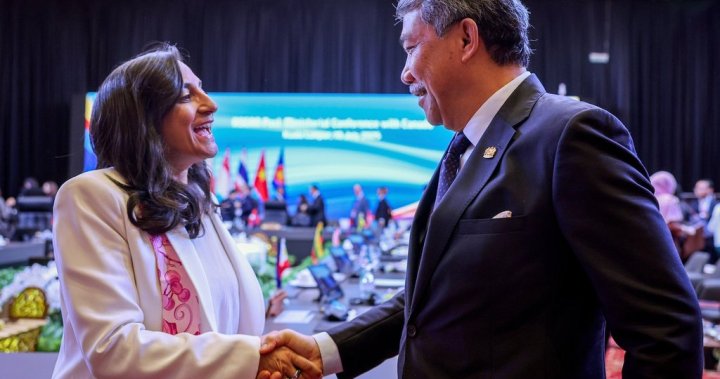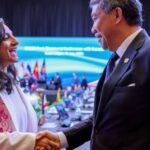The federal government’s evolving Indo-Pacific strategy is shifting toward a stronger economic focus, while maintaining Canada’s commitment to democratic values, Defence Minister Anita Anand revealed Tuesday. This recalibration comes amid mounting global tensions and represents a crucial pivot in Canada’s approach to one of the world’s most dynamic regions.
“We will be focusing on economic priorities in the Indo-Pacific strategy, with values being maintained throughout,” Anand told reporters following a cabinet meeting in Ottawa. This marks a significant refinement of Canada’s regional engagement approach, first unveiled in November 2022 as a comprehensive framework for navigating complex relationships with countries including China, India, Japan, and South Korea.
The original strategy, which committed $2.3 billion over five years, aimed to expand and deepen Canada’s presence across diplomatic, economic, military and security dimensions. However, the international landscape has shifted dramatically since its launch, with escalating tensions between China and Taiwan, ongoing conflicts in Ukraine and Gaza, and increased regional competition forcing a strategic reassessment.
Trade Minister Mary Ng, who has been tasked with leading the economic component of the revised strategy, emphasized that Canada must strengthen its economic resilience by diversifying trading relationships. “In an increasingly uncertain world, we need to ensure our economy remains competitive while securing critical supply chains,” Ng said in a statement provided to CO24 Business.
The Indo-Pacific region accounts for over 60% of global GDP and contains some of the world’s fastest-growing economies. For Canada, whose traditional trade has been heavily oriented toward the United States and Europe, this pivot represents both opportunity and necessity. Canadian exports to the region grew by 12% in 2023 alone, outpacing overall export growth.
Experts caution that balancing economic ambitions with values-based diplomacy remains challenging. Dr. Stephanie Reynolds, Director of the Asia Pacific Foundation of Canada, told me, “Canada is attempting to walk a tightrope between pursuing commercial interests and upholding human rights and democratic principles. This becomes particularly delicate when engaging with countries where these values may not align.”
The strategy’s refinement comes as other Western nations, including the United States, Australia, and the United Kingdom, have solidified their own Indo-Pacific frameworks. The AUKUS security pact and expanded Quad partnership (including the U.S., Japan, Australia, and India) have created new regional alignments that Canada must navigate carefully.
Opposition critics have questioned whether the government’s approach lacks clarity. Conservative foreign affairs critic Michael Chong noted that “Canadians need more than vague pronouncements about balancing economics and values. We need concrete actions that protect Canadian interests while engaging meaningfully with like-minded partners in the region.”
For Canadian businesses, the strategy’s economic emphasis could translate into enhanced trade facilitation, reduced barriers, and greater support for market entry. The Business Council of Canada has advocated for deeper economic integration with fast-growing Indo-Pacific economies, particularly as traditional markets face uncertainty.
Deputy Prime Minister Chrystia Freeland, who oversees Canada’s economic policy, highlighted the strategy’s importance for future prosperity. “The economic center of gravity is shifting eastward. Canada’s economic security depends on building stronger, more resilient connections throughout the Indo-Pacific,” she stated during recent economic consultations.
As Canada refines its approach to this critical region, the question remains: can Ottawa successfully balance economic pragmatism with values-based diplomacy in a region marked by increasing competition and divergent political systems? The government’s ability to navigate these complex currents may well determine Canada’s influence and prosperity in the decades ahead.










